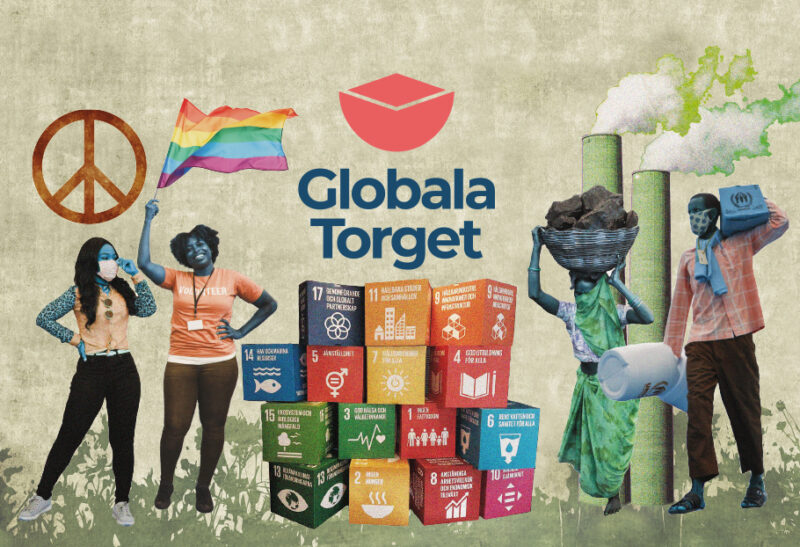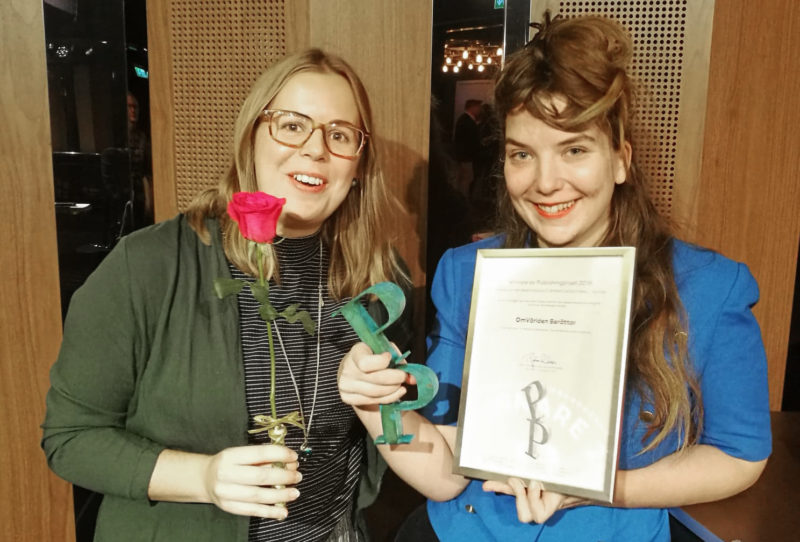
During the Stockholm Act week, one of the Global Bar events will concern artificial intelligence. Why should people interested in international development care about all these futuristic ideas? Don’t we have armed conflicts, climate change, or other more urgent issues on the table? Here are five reasons why discussion about AI is more than relevant for anyone who cares about global issues.
AI is here already. Intelligent machines are not just a rosy dream. Associated Press uses an AI called Wordsmith to write thousands of news articles a year. Tesla is about to test self-driving trucks on the public roads. In the meantime, Google’s autonomous car Waymo has already driven more than 3 million test miles and is about to be released to the general public. Finish IT-giant Tieto has appointed an AI called Alicia T to the management team for one of its units, with a right to vote. Let alone all the intelligent chatbots used by numerous companies for customer support and marketing. And even more news is just around the corner: investing in AI companies is, probably, the most hype trend in the startup world these days.
AI is not for geeks only. It might seem that words “robot”, “artificial intelligence”, or “machine learning” should only concern those who work in tech startups and IT companies. The thing is, it is not true. Some of the major actors in international development are also actively looking into the possibilities that AI might bring into the field.
“As the Secretary General of the United Nations, I am strongly committed to promoting global cooperation on this emerging issue, – António Guterres stated addressing participants of the AI for Good Global Summit in Geneva. – Artificial intelligence can analyze enormous volumes of data, which in turn can improve predictions, prevent crimes, and help governments better serve people”. During this conference alone, such influential organizations as major UN agencies, World Economic Forum, ICRC, Amnesty International, and many others engaged in a discussion on AI and solving global problems. It seems like being ignorant of the topic will soon be considered mauvais ton for a development specialist.
AI could take our jobs. We grew quite used to the fact that technology can replace humans in the workplace: industrialization was all about it, and digital revolution only speeded up the process. There is one special thing about AI though. Now, it is not only factory workers who need to be concerned – white collars are in danger too. Artificial intelligence is particularly good at working with large amount of information, and can process it really fast. Researchers are still crossing swords on whether technology will leave us all unemployed, but those in monitoring, distribution, and all kinds of coordination jobs might need to be a bit more worried than others. For example, a newly built warehouse at the UN City in Copenhagen is already fully automated.
To show the predicted risks for different professions, researchers from Oxford University developed a website called “Will Robots Take my Job?”. Not surprisingly, predictions for some of the widespread occupations in development industry are “Robots are watching you” or “You are totally doomed”.
AI could become the Big Brother. We are yet nowhere near to having mighty intelligent robots like Azimov’s Demerzel or Kubrick’s HAL 9000. Still, some of the brightest minds of our time seem really worried about the advances in machine learning. Stephen Hawking warns that “development of full artificial intelligence could spell the end of the human race”. Elon Musk says that artificial intelligence is “vastly more risk then North Korea”. Finally, Bill Gates sees AI as a threat too, and “doesn’t understand why some people are not concerned”.
Some of the new developments in the field make these voices sound even louder. In July 2017, researchers from the Facebook AI Research Lab noticed that their chatbots created a new language, without any input or instructions from humans. Bots named Bob and Alicia had to be shut down since they chatted in their own lingo that people cannot understand. Maybe this does not sound scary enough yet, but keep in mind – we plan to give AI information about our homes, traffic, agriculture, and many more important things. Do we want someone that powerful to suddenly develop his own language or even consciousness?
AI can save lives and make them better for many. Despite all the precautions, AI’s potential to help solving global issues cannot go unnoticed. Intelligent machines can analyze big data sets, detect patterns, assess the performance of different systems – and these “skills” attract attention of healthcare practitioners and humanitarian relief agencies. Those working with sustainable development issues have even more reasons to look into possibilities of AI: it can help reduce the amount of energy we use in the household, fuel we spend in traffic, or even food we waste in vain. While humankind has trouble keeping to its own commitment to reduce emissions, maybe robots will save us all?
If you feel convinced that AI is worth your attention, join us at the Global Bar’s panel discussion “Can Robots Fix Agenda 2030?”. See details on the event page.








